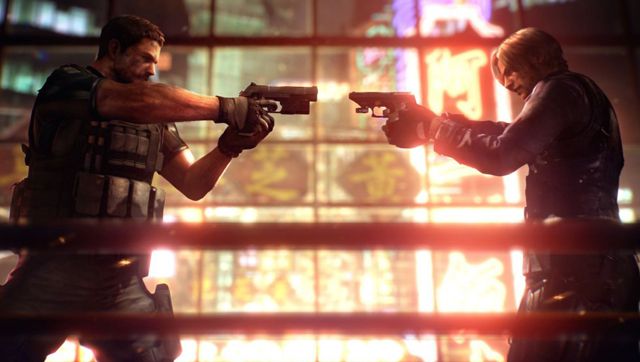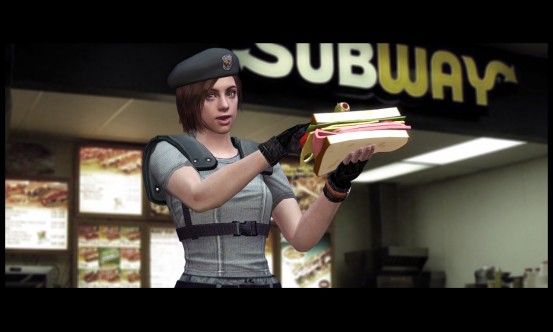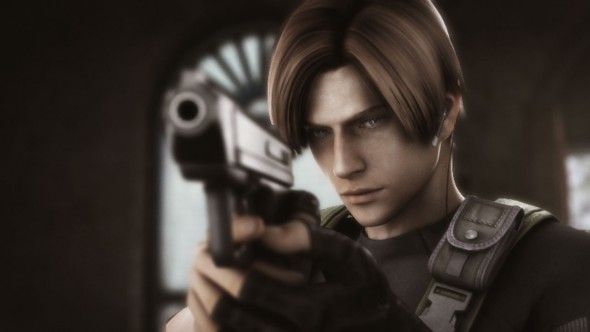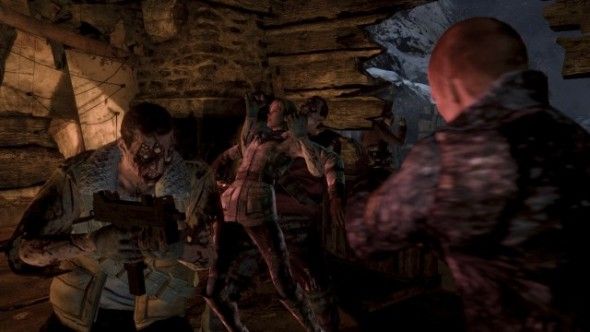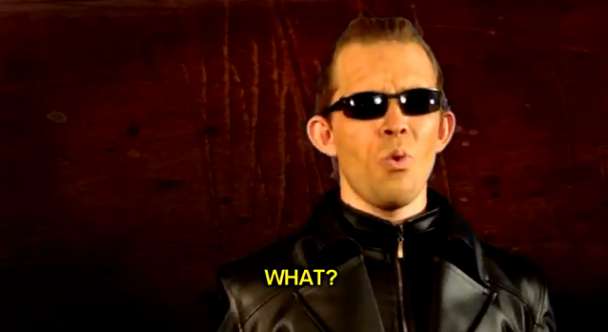I hate roping people into things unknowingly, so I want to preface the rest of this editorial by saying that this is an interactive article. For this article to be effective, it requires the reader to take part in something that is somewhat difficult. I promise that if you meet me halfway, we will all be better off by the end of this. I will be here through the whole fiasco and we will be stronger for it. I should clarify that this is for people who feel that RE6 somehow "betrayed the series", anyone who feels RE6 was lackluster as a game in general is excused.
Before you read on, I want you take a deep breath and access the part of yourself that is willing to face the worst. I want you to delve into your heart of hearts and know that I mean nothing malicious by the next request.
Can we please, please, please stop pretending that the Resident Evil franchise was better than it actually was?
Do not get me wrong; I am not here to convince you that any of the Resident Evil games were wholly terrible. I am fine with the people who love the games. I’ve played a majority of them myself, and I enjoyed every one I’ve played. I even bought a copy of Operation Raccoon City of my own volition and defend the purchase to this very day. (I enjoyed it, sue me.) Would I recommend it to others? Probably not, it’s a nice little project that bridges RE 2 and 3, but I wouldn’t put anyone out of sixty dollars for what amounts to the video game equivalent of “Meanwhile, at the Hall of Justice...”
Giving credit where it’s due, RE popularized the survival horror genre that gave way to such great games as Silent Hill, Dead Space, and Left for Dead. It inspired a culture out of a minimally explored genre of gaming. It introduced characters, dialogue, and tropes that will forever stand out in the medium…
…And almost all of it was mediocre at best. The most memorable lines in the original Resident Evil are some of the most poorly written ones. Merit of quality had nothing to do with it; the laughably terrible localization of the original Resident Evil is what makes the dialogue so endearing. I wouldn’t take away Jill sandwiches or “master of unlocking” for the world, but I also can’t help but point out that a lot of the notable lines fit in the “so bad it’s good” category.
This isn’t about maligning Resident Evil, it’s about understanding that RE6 averaging out to a 6.5 did not spell out the end of the series in any way that hadn’t already occurred. If you disliked the game thematically, that is understandable, if not a bit late. Resident Evil 6 was not the end of RE as you knew it. The culprit behind the “death” of the RE that you knew and loved is the highly acclaimed Resident Evil 4.
Largely regarded as the high point of the series, Leon’s frolicking adventures in pseudo-Spain set the tone for the future titles by creating tension through over-the-top action and body horror. It worked wonders, but one could hardly blame Capcom for sticking with what fans claim saved the series. It’s a near-sighted play on Capcom’s part, but the idea of people being surprised by Capcom’s myopia is far more terrifying than anything that has come out of RE in some time.
Survival horror requires the player to acknowledge and at least mildly fear the danger the protagonist is in. The original RE accomplished building tension and fear for your protagonist almost unintentionally. The dogs and zombies provided the aesthetic, but almost all of the “horror” in Resident Evil was a byproduct of the game’s terrible movement system. When people complain that they want RE to go back to its roots, I wonder if they forgot just how infuriatingly slow turning was in that game.
Advancing the gameplay, giving more freedom to the player to navigate and react to attackers has long since done away with the tension that the RE franchise built through gameplay. The general advancement of third party shooting does not inspire any feelings of horror in and of itself, hence Capcom’s choice to give the infected guns in the latest installment.
This bears restatement, the franchise that brought you running zombies, infected dogs, lickers, and Nemesis couldn’t find a way to make a zombie apocalypse intimidating without putting guns in the hands of the undead. Resident Evil has taken to escalation and power creeping in a way that would make Shonen Jump blush. Instead of an intriguing conspiracy that chilled us with the thought of civilization being wiped out via bio-terror, Capcom decided bigger was better. The bad guys got stronger, and the protagonists needed to step it up if they were going to believably survive.
Chris Redfield is not a protagonist you fear for. The guy’s been doing this for years, and it shows. Boulder punches aside, I find it surprising that he doesn’t burst into hysterical laughter any time an infected comes at him. There’s a reason Chris and Wesker feel right at home in MvC3, and it’s because they have long since stopped being the humans we could actually feel a modicum of fear for.
There’s one last thing worth noting, and it’s that we’re not eleven anymore. Lowbrow physical horror is simple, and it worked like a charm when the thought of zombies in and of themselves (and not all of the societal implications of a zombie apocalypse) could actually instill fear in us. Almost all Zombie fantasies are ones in which they've already won. The Walking Dead, Zombieland, I am Legend, The Last of Us, Night of the Living Dead and so on. We're far more chilled and intrigued by the prospect of soldiering forward in a world where survival is minimal, where other humans are as much or more of a threat than any shambling mess looking to turn your skull into a lunchable.
Think about it for a second, when was the last time the undead scared you in a video game? (Hell, when was the last time the undead were scary in any genre?) The most common answer I get to this question is Left for Dead, to which my general response is “Was L4D scary because of the zombies, or because you’re playing as a regular, run-of-the-mill human being?” Inspiring terror is often easier by reinforcing one's helplessness rather than turning the amp to 11.
All of this adds up to something that even I wasn’t happy to admit: Resident Evil worked because of the novelty, not because of the quality. The last step in the process is acknowledging it. The people who are crying out just now, as if the series only recently took a left turn have let their nostalgia re-imagine the series as gourmet parmigiano-reggiano when it barely qualified as cheez-whiz. And that sucks, because cheez-whiz can be damn enjoyable in its own way, so long as you know what you’re eating.

